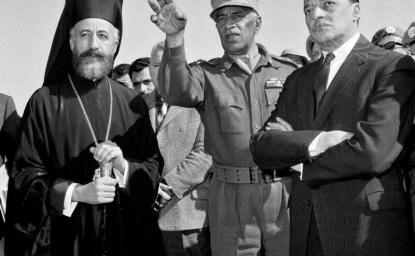Prague - Czech foreign intelligence service UZSI today published unique
documents from the history of espionage of the former Communist secret police StB, UZSI deputy head Ivo Schwarz told journalists.
The records describe the collaboration with the Soviet KGB and further intelligence services from the Communist bloc.
"We are making accessible whatever can be. History is the property of all of
us, not only of historians," Schwarz said.
However, a number of documents are still kept secret as their publication
would threaten the security and economic interests of the Czech Republic,
Schwarz said.
The symbolical 1989 documents were opened to the visitors of the webpage of
the Urad pro zahranicni styky a informace (Office for Foreign Relations and Information) at 11:00 a.m., he added.
A major part of the records relates to the collaboration of the Communist
intelligence, denoted as the first department of the National Security Corps (SNB), with the KGB.
The Soviet secret service controlled its Czechoslovak counterparts through
its aides.
The "asymmetrical" character of the collaboration is highlighted by a
document from 1990. Its author says that the StB received 3499 reports from the
"Soviet friends" between December 1985 and end of 1989.
However, over 18,000 documents were sent in the opposite direction. The quality and use of the former documents was questionable. If anything, these are
summary reports drawn up for the Soviet senior officials rather than "raw"
intelligence material usable in the field.
Further documents relate to the struggle of the secret police against the
Vatican and churches, against Czechoslovak exiles and to the situation in the intelligence during the 1968 "Prague Spring" reform movement suppressed by the Warsaw Pact, Scharz said.
When choosing what information should be published, the intelligence had to
take into account the Czech Republic's current obligations. The Communist
espionage also collected information about the countries that are now Czech
allies and the people holding senior posts in their security bodies.
As a result, there is no information about foreign nationals, the struggle
with international terrorism and how the intelligence was acquiring documents
about inventions and technologies that were then used in the Czech Republic.
Find more information by clicking here

Cold War International History Project
The Cold War International History Project supports the full and prompt release of historical materials by governments on all sides of the Cold War. Read more




